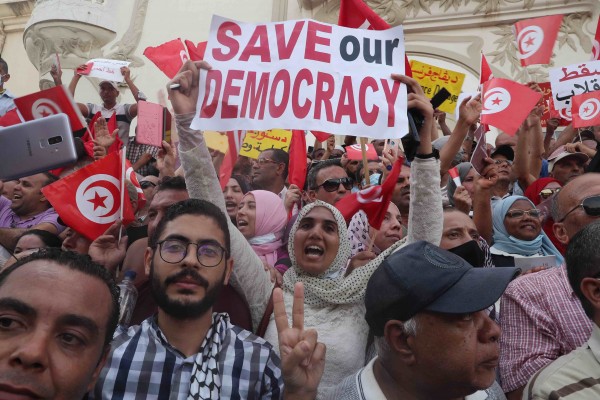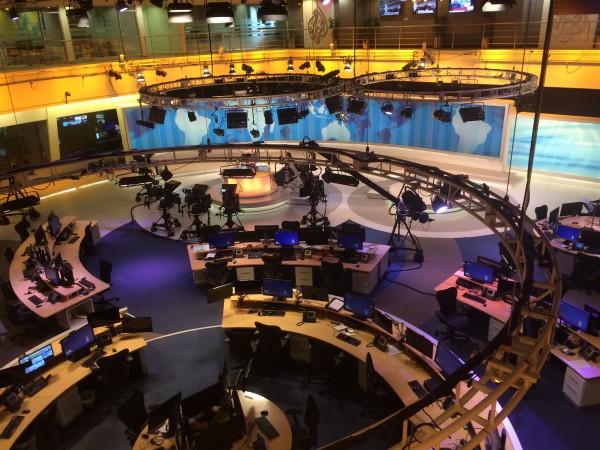International human rights organisation, Human Rights Watch, was prohibited by government officials from holding a press conference in Tunisia on Wednesday, 24 March. The organisation was due to launch its report “A Larger Prison: Repression of Former Political Prisoners in Tunisia.”
In a statement sent to the Tunisia Monitoring Group – a coalition of 20 press freedom organisations, including the International Press Institute, that belong to the International Freedom of Expression eXchange (IFEX) network, Human Rights Watch stated that the officials from the ministries of Interior and Justice said they would not allow it to proceed because the report “tarnishes the image of Tunisia and is one-sided and biased.”
Speaking to IPI on the day of the conference, Sarah Leah Whitson, Middle East director at Human Rights Watch, said Tunisia Minister of Communications, Oussama Romdhani had not expressed any concern about the press conference when contacted by email a week ago. However, when the team from Human Rights Watch arrived in the country, he told them in a private meeting at his office on 22 March that “it is not the wish of the sovereign” for the news conference to proceed. Whitson said the minister gave no legal basis for his decision, simply that it was his decision to make. Human Rights Watch had previously held two other press conferences in the country, without incident.
Whitson also told IPI that following their meeting with the minister, several hotels, with which the organisation had made provisional reservations to host the press conference, withdrew their reservations, forcing Human Rights Watch to instead hold their conference in the offices of a law firm. However, despite having found another venue, journalists were then physically blocked from attending the press conference by local authorities.
The press conference was recorded and the organisation plans to upload the video to YouTube so its intended audience can see it.
Human Rights Watch claims they were subject to constant surveillance by at least six plain-clothes police officers who openly recorded them and those trying to attend the press conference.
“The government should be embarrassed,” said Whitson. “This reflects the shrinking space for public expression in Tunisia. We look forward to the government changing its position.
“We are not going to give up our work just because the government does not approve.”
IPI Director David Dadge said: “Preventing the hosting of a human rights press conference will only further tarnish the reputation of a country that has shown absolutely no tolerance for freedom of expression. Who is free to speak in Tunisia when the government is so sensitive to criticism and the dialogue of civil society? The Tunisian government must overcome its impulse to control debate and work to create an environment tolerant of opposing views.
“As members of the Tunisia Monitoring Group we will continue to scrutinize the actions taken by the Tunisian authorities and urge them to follow our previous recommendations.”
Press freedom has been deteriorating in the North African country surrounding and following presidential and parliamentary elections held last October. In its World Press Freedom Review 2009 – Focus on the Middle East and North Africa, the International Press Institute recommended the Tunisian authorities end the harassment of journalists, ensure that journalists are able to cover elections freely and cease using criminal charges as a way of intimidating journalists.


